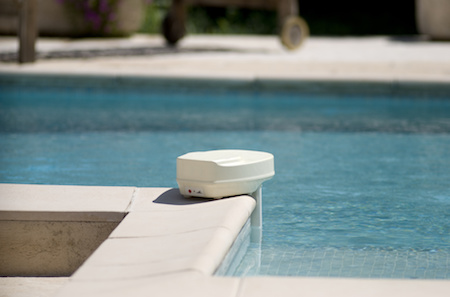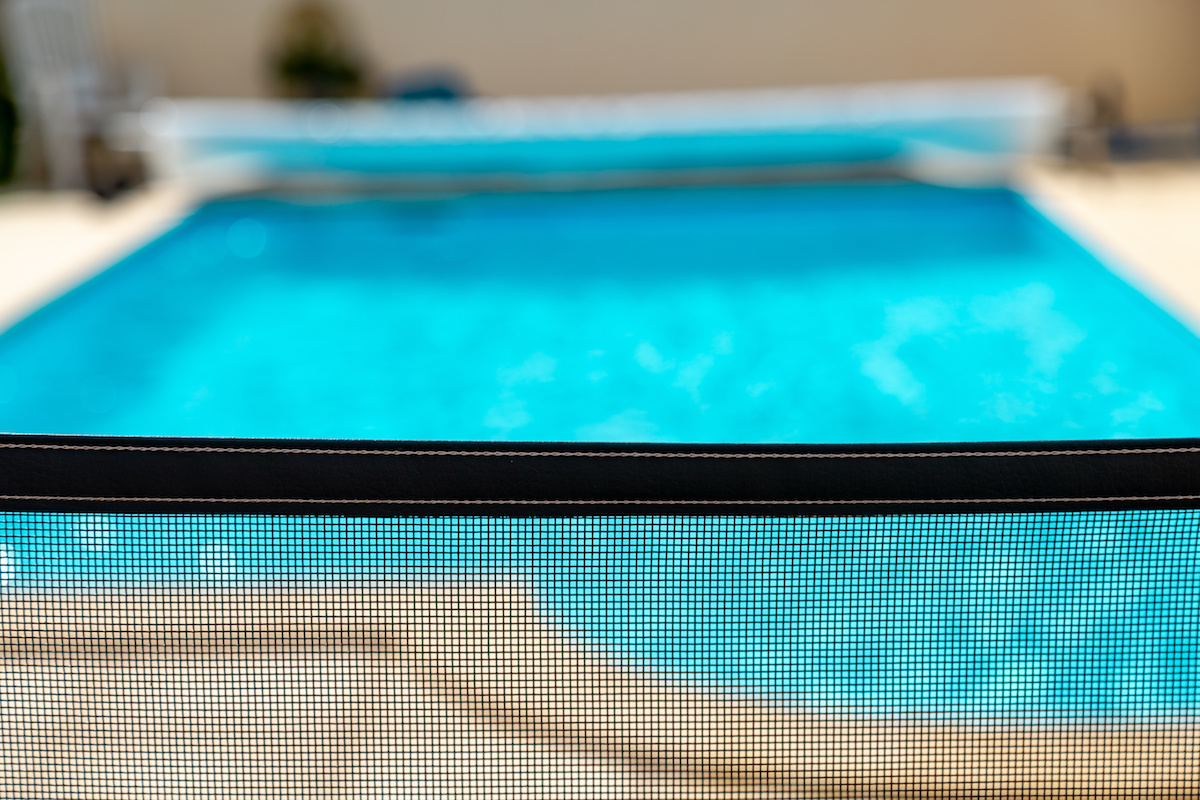Should You Install a Pool Alarm?
If you have kids in the house and you’re thinking about installing a new pool, you should also think about how to keep the kids safe while enjoying the pool. Pool safety is most homeowners’ main concern when it comes to a backyard pool. The number one cause of death for children under the age of five in the United States is accidental drowning. One way to ensure that your pool is as safe as it can be for your little ones is to install both a pool barrier and a pool alarm.
Phoenix Requirements for Pool Barriers
Phoenix-area homeowners are required to have a barrier to help prevent accidental drowning. Homeowners must have a fence separating the pool from neighboring properties. In addition to that fence, Phoenix homeowners must also provide a physical barrier between a house and a swimming pool on the same property. There are a few options available to homeowners to meet this requirement:
Inner Barrier Fence
One option to meet Phoenix barrier standards is to construct an inner barrier fence around the entire pool. The barrier fence is subject to the following requirements (among others):
- Five feet high measured from the exterior side of the fence.
- No holes or openings that would allow a four-inch ball to pass through.
- Minimum of 45 inches between horizontal bars, toeholds, or handholds (to prevent climbing).
- Wire mesh or chain link fences can only have a maximum opening size of 1 and 3/4 inches (measured horizontally).
- All metallic parts within five feet of the inside wall of the pool must be bonded with at least 8 AWG wire.
Additionally, any gate must be self-closing and self-latching and able to accommodate a lock. Gates must swing outward from the pool area, and the latch must be 54 inches minimum above the ground. The gate must also meet the same construction requirements as the barrier fence. Phoenix homeowners can find out more about the gate and inner barrier fence requirements by reading the 2018 International Swimming Pool and Spa Code (ISPSC) with the City of Phoenix Amendments.
Use House Wall as Part of Barrier

In addition to the required barrier, some homeowners may choose to install pool alarms as an added layer of protection. Call Specialty Pools today to explore your options!
Instead of constructing a fence around the entire pool, Phoenix homeowners can also use the house wall as part of the barrier. According to Phoenix mandates, if homeowners use a house wall as part of the barrier, the following must be adhered to:
- All doors must be self-closing and self-latching and must swing outward from the pool area.
- A simple latch or lock located a minimum of 54 inches above the floor, or a double-keyed deadbolt at any
height is acceptable. - Animal doors are not allowed.
- All sliding glass doors, including multi-panel glass doors, on leaf shall be self-closing and self-latching with an approved automatic door closer or;
- Provide a separate fence; or
- Replace the sliding glass door with a self-closing hinged door; or
- Fasten the door shut with locks or devices that require a tool or key to remove (option not available if this
is the only door to the pool area from the room). - Removable pins or locks which prevent the door from being opened are not sufficient to meet this safety code.
- Window latches must be at 54 inches minimum above floor; or
- Except for bedroom egress windows, screwed in “stops” (not thumb screws) may be used to limit window
openings to four inches; or - Except for bedroom egress windows, provide a screwed-in-place wire mesh screen.
- Windows, where the bottom edge is less than 60 inches above the pool decks and in within five feet of the water’s edge, must be tempered glass.
- Areas outside of windows or doors that otherwise cannot be made to comply with barrier and egress
requirements must be fenced.
Motorized Pool Cover
Another option for homeowners looking to satisfy the City of Phoenix’s barrier requirements is to install a motorized pool cover that complies with ASTM F-1346. Pool contractors, such as the professionals at Specialty Pools here in Phoenix, Arizona, can help homeowners choose the best option for their home.
Frequently Asked Questions about Phoenix Barrier Requirements
The barrier requirements for homeowners with pools were implemented in April 1990. Some homeowners may have questions about their property and pool, such as whether they need to have a barrier if no children are present.
Can I Use a Pool Alarm Instead?
No, the City of Phoenix requires that a physical, automatically-closing barrier must separate the pool from other properties and the house on the same property as the pool. While other options are encouraged, they only serve as an additional layer of protection for small children. These options include:
- Both self-closing doors and a separate fence.
- Alarms on house doors.
- Pool alarms in the water
- Additional temporary fencing
What if I Don’t Have Children or My Child Grew Up?
Any pool permitted after May 4, 1990, requires a physical barrier. You cannot remove the barrier if your children leave the house. The codes are intended to eventually apply to all pools, not just pools that small children have access to. The only reason there is an exception in the code is for homeowners with pools permitted before 1990 that small children do not have access to; in these cases, the aim is to minimize the impact on those homeowners in particular, not homeowners without children.
When Must the Barrier Be Installed?
Immediately. The barrier is part of the inspection process, which a pool contractor can help walk you through if you’re ready to get started on your brand new pool!
How Can Specialty Pools Help You?
Here at Specialty Pools in Phoenix, we assign a personal superintendent to every single pool build. They will be the person you deal with from design to completion to the final startup. At most pool companies, you will have 4-5 people to deal with in the design-build process. By streamlining our processes and eliminating a showroom, we can use higher quality components in our build, provide more personalized attention, and provide competitive pricing. With a team of experienced professionals that are with you every step of the way, you can be sure you’ll get everything you want in a customized pool, built to last. Call today to get started!

